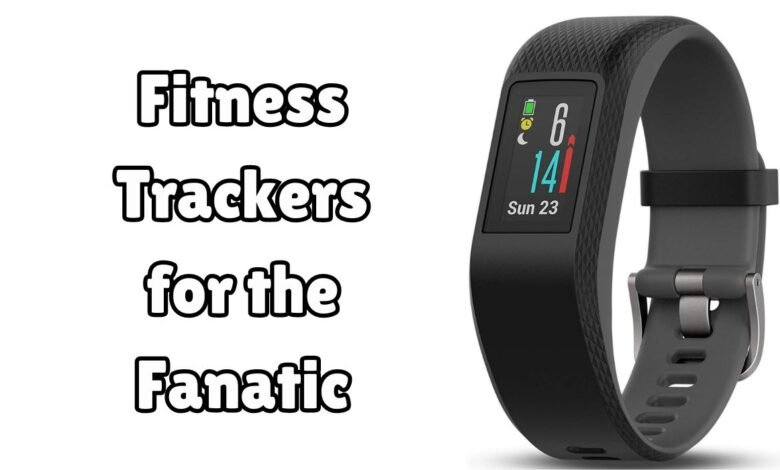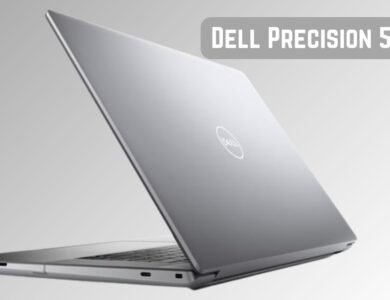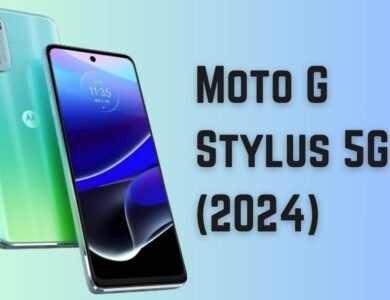Fitness Trackers for the Fanatic: Top Picks for 2024
Discover the latest fitness trackers designed for the fitness fanatic. Track your progress, optimize workouts, and stay motivated every step of the way.

In the modern landscape of health and wellness, fitness trackers have become indispensable for anyone serious about their fitness journey. These devices offer more than just a means to count steps; they provide comprehensive insights into one’s physical activity, monitor progress, and assist in setting and achieving fitness goals. Whether you are a casual walker, an avid runner, or a dedicated gym-goer, fitness trackers can elevate your workout experience by offering real-time data and long-term trends.
Fitness trackers help users stay motivated by visualizing progress and identifying areas for improvement. They can track a wide range of activities such as walking, running, cycling, and even swimming. Additionally, many fitness trackers come equipped with heart rate monitors, sleep tracking capabilities, and some even offer advanced metrics like VO2 max and stress levels. Such detailed analytics empower users to make informed decisions about their health and fitness routines.
This blog will delve into the various types of fitness trackers available on the market, tailored to different fitness needs and preferences. From basic step counters to advanced multi-sport tracking devices, we will explore the best options for every fitness enthusiast. Whether you are looking for a tracker that can withstand intense physical activities or one that offers seamless integration with your smartphone, we have got you covered. Stay tuned as we navigate through this comprehensive guide to help you step up your fitness game with the best trackers suited for your needs.
Types of Fitness Trackers
Fitness trackers have evolved significantly, catering to a wide range of needs from basic activity monitoring to advanced health metrics. Understanding the different types can help you make an informed decision based on your fitness goals and lifestyle.
Basic Activity Trackers
Basic activity trackers are designed for individuals looking to monitor their everyday movements. These devices typically track steps, distance, and calories burned. They often include additional features like sleep tracking and basic heart rate monitoring. Basic activity trackers are usually the most affordable options, making them ideal for beginners or those on a budget.
Advanced Fitness Trackers
Advanced fitness trackers offer more comprehensive health and fitness metrics. In addition to the features found in basic trackers, these devices often include GPS for outdoor activities, advanced heart rate monitoring, VO2 max estimation, and even stress tracking. They are suitable for serious athletes or fitness enthusiasts who require detailed data to optimize their training and performance.
Smartwatch Hybrids
Smartwatch hybrids combine the functionalities of fitness trackers with the versatility of smartwatches. These devices not only track a wide range of fitness metrics but also offer smartphone notifications, music control, and even mobile payments. They are perfect for tech-savvy users who want an all-in-one device that can handle both fitness tracking and daily tasks.
Comparison Table
Below is a comparison of the three types of fitness trackers:
| Tracker Type | Features | Price Range | Target Users |
|---|---|---|---|
| Basic Activity Trackers | Steps, Distance, Calories, Sleep, Basic Heart Rate | $20 – $100 | Beginners, Budget-conscious Users |
| Advanced Fitness Trackers | GPS, Advanced Heart Rate, VO2 Max, Stress Tracking | $100 – $300 | Serious Athletes, Fitness Enthusiasts |
| Smartwatch Hybrids | Fitness Tracking, Smartphone Notifications, Music Control, Mobile Payments | $200 – $500 | Tech-savvy Users, Multi-taskers |
Choosing the right fitness tracker involves understanding what features are most important to you and how much you are willing to invest. Whether you are a beginner or a seasoned athlete, there is a fitness tracker that can help you achieve your health and fitness goals.
Top Trackers for Beginners
For those new to fitness tracking, selecting a user-friendly and affordable option is crucial for maintaining motivation and consistency. The following fitness trackers are perfect for beginners due to their ease of use, basic tracking capabilities, and budget-friendly prices.
Fitbit Inspire 2:
The Fitbit Inspire 2 is an excellent entry-level fitness tracker. It offers essential tracking features such as heart rate monitoring, step counting, and sleep analysis. The intuitive interface makes it easy for beginners to navigate, and the long battery life ensures minimal interruptions. Additionally, the Fitbit app provides a comprehensive overview of your fitness data, helping you set and achieve your fitness goals.
Pros:
- Simple and easy to use
- Affordable
- Comprehensive app integration
- Good battery life
Cons:
- Limited advanced features
- No built-in GPS
Garmin Vivosmart 4:
Another great option for beginners is the Garmin Vivosmart 4. This fitness tracker offers a sleek design and essential tracking features, including heart rate monitoring, sleep tracking, and stress level measurement. The Body Battery energy monitoring feature helps users manage their energy levels throughout the day, making it easier to plan workouts and rest periods effectively.
Pros:
- Sleek and stylish design
- Comprehensive health monitoring
- Body Battery energy tracking
Cons:
- Small display
- Limited customization options
Xiaomi Mi Band 6:
The Xiaomi Mi Band 6 is a budget-friendly fitness tracker with a surprising array of features for its price. It offers heart rate monitoring, sleep tracking, and even SpO2 measurement. The larger AMOLED display provides clear visuals, and the long battery life ensures that you can track your fitness activities without frequent recharging.
Pros:
- Affordable
- Large, clear display
- Comprehensive tracking features
- Long battery life
Cons:
- Basic app interface
- Limited third-party app integration
Fitbit Inspire 2, Garmin Vivosmart 4, and Xiaomi Mi Band 6 are all excellent choices for beginners who want to start their fitness tracking journey. Each offers a unique set of features that cater to different needs, making it easier for users to find the perfect fit for their lifestyle and fitness goals.
Best Trackers for Advanced Users
For serious fitness enthusiasts, advanced fitness trackers offer a wealth of features designed to provide comprehensive data and insights into their training and overall health. These devices go beyond basic step counting and calorie tracking, integrating sophisticated technologies such as GPS tracking, heart rate monitoring, and customizable workout plans. These features enable users to optimize their training regimens and achieve their fitness goals more effectively.
GPS tracking is a critical feature for advanced fitness trackers, allowing users to accurately map their runs, rides, and other outdoor activities. This functionality provides real-time data on distance, pace, and elevation, enabling athletes to analyze their performance and identify areas for improvement. Coupled with heart rate monitoring, GPS tracking offers a thorough understanding of how the body responds to various intensities of exercise, making it easier to tailor workouts for optimal results.
Heart rate monitoring, particularly when it includes continuous tracking and heart rate variability (HRV) analysis, offers invaluable insights into cardiovascular health and fitness levels. Advanced fitness trackers can monitor resting heart rate, peak heart rate during workouts, and recovery times, providing a comprehensive picture of the user’s cardiovascular endurance and overall fitness. This data is essential for creating personalized training plans that balance intensity and recovery, reducing the risk of overtraining and injury.
Customizable workout plans are another essential feature for advanced users. Many high-end fitness trackers offer integrated coaching and training plans that adapt based on user performance and goals. These plans can include tailored workouts, rest days, and progress tracking, providing a structured approach to training that can lead to significant improvements in performance.
Below is a comparison table of the top advanced fitness trackers, highlighting key specifications:
| Tracker | GPS Tracking | Heart Rate Monitoring | Customizable Workout Plans |
|---|---|---|---|
| Garmin Forerunner 945 | Yes | Yes | Yes |
| Polar Vantage V2 | Yes | Yes | Yes |
| Suunto 9 Baro | Yes | Yes | Yes |
These advanced fitness trackers offer a blend of cutting-edge technology and user-friendly features, making them ideal for athletes and fitness enthusiasts seeking to elevate their training and maximize their performance.
Trackers with the Best Battery Life
For fitness enthusiasts who prioritize uninterrupted tracking, battery life is a critical feature. A fitness tracker that requires frequent charging can be a deterrent to consistent use. Fortunately, several fitness trackers on the market are designed to offer extended battery life, ensuring users can focus on their workouts rather than charging schedules.
One standout in this category is the Garmin Vivosmart 4, which provides an impressive battery life of up to seven days on a single charge. This tracker is equipped with advanced features such as heart rate monitoring, sleep tracking, and stress tracking, all while maintaining energy efficiency. Its charging time is relatively short, requiring less than two hours to reach full capacity.
The Fitbit Charge 5 is another excellent option, boasting a battery life of up to seven days. This device includes a wide array of functionalities, from GPS tracking to advanced health metrics like ECG and EDA scans. Despite its comprehensive feature set, it remains efficient, needing only about two hours to recharge fully. The streamlined design and user-friendly interface make it a favorite among fitness aficionados.
For those seeking exceptional battery longevity, the Coros Pace 2 stands out with up to 20 days of battery life in regular use mode and up to 30 hours in full GPS mode. This makes it an ideal choice for long-distance runners or outdoor adventurers. Its quick charge capability ensures it is ready to go after a brief charging period.
Lastly, the Amazfit Bip U Pro offers an impressive nine days of battery life, making it a strong contender in the battery longevity race. It features integrated GPS, heart rate monitoring, and sleep tracking, providing a comprehensive fitness tracking experience without the need for frequent recharges. The device can be fully charged in about two hours, ensuring minimal downtime.
Choosing a fitness tracker with excellent battery life means less time tethered to a charger and more time focusing on one’s fitness goals. These devices not only deliver on longevity but also offer a range of features that cater to the diverse needs of fitness fanatics.
Best Trackers for Specific Activities
When it comes to fitness trackers, one size does not fit all. Different activities require unique features to optimize performance and monitor progress effectively. Here, we delve into the best fitness trackers tailored for specific activities such as running, swimming, cycling, and weightlifting.
Running
For runners, the ideal fitness tracker should offer precise metrics and support for various running conditions. One of the top choices is the Garmin Forerunner 245. This tracker stands out with its advanced running dynamics and training plans.
- Accurate GPS Tracking: Ensures precise distance and pace measurement.
- Heart Rate Monitoring: Offers continuous heart rate monitoring to optimize training intensity.
- VO2 Max Estimation: Provides insights into your cardiovascular fitness levels.
- Customizable Training Plans: Tailors workouts to your fitness goals.
Swimming
For swimming enthusiasts, the Apple Watch Series 6 is a formidable option. This tracker is designed to withstand the rigors of water-based activities while providing comprehensive swim metrics.
- Water Resistance: Rated for depths up to 50 meters.
- Swim Tracking: Measures metrics such as laps, distance, and stroke efficiency.
- Heart Rate Monitoring: Monitors heart rate even underwater.
- Built-in GPS: Tracks open water swims with precision.
Cycling
Cyclists need a tracker that can endure long rides and provide detailed performance insights. The Wahoo ELEMNT Bolt excels in this arena with its robust feature set.
- Integrated GPS: Offers turn-by-turn navigation and route tracking.
- Performance Metrics: Tracks speed, distance, and elevation gain.
- Wireless Connectivity: Syncs with sensors and cycling apps.
- Long Battery Life: Supports extended rides without frequent recharging.
Weightlifting
When it comes to weightlifting, the Fitbit Charge 4 is a strong candidate. It offers features tailored to strength training and overall fitness tracking.
- Activity Tracking: Monitors reps and sets during weightlifting sessions.
- Heart Rate Zones: Helps optimize strength training by monitoring exertion levels.
- Built-in GPS: Useful for tracking outdoor workouts.
- Sleep Tracking: Provides insights into recovery and overall well-being.
Each of these fitness trackers offers specialized features that cater to specific activities, ensuring that fitness enthusiasts can monitor their progress and achieve their goals effectively.
- From display to chipset, these companies make parts for iPhone
- Apple : What is the cloud strategy?
- Samsung Galaxy S23 Deals on Flipkart: Get it for ₹49,999 + Bank Offers
How to Choose the Right Fitness Tracker for You
Choosing the right fitness tracker can considerably enhance your fitness journey, but with so many options available, making the right choice can be daunting. To simplify the decision-making process, several key factors should be taken into account. This guide will help you identify what to consider when selecting the perfect fitness tracker for your needs.
Firstly, budget plays a crucial role. Fitness trackers come in a range of prices, from basic models that track steps and calories to advanced devices that monitor heart rate, sleep patterns, and even offer GPS capabilities. Determine how much you are willing to spend before you start exploring your options.
Your fitness goals are another significant factor. If you’re a casual walker, a simple step counter might suffice. However, if you’re training for a marathon or triathlon, you’ll benefit from a more sophisticated tracker that offers detailed performance analytics and environmental adaptability.
Compatibility with other devices is also essential. Ensure that the fitness tracker seamlessly integrates with your smartphone and other gadgets. Most devices are compatible with both Android and iOS, but it’s always best to double-check to avoid any potential issues. Additionally, consider whether the tracker supports third-party apps that might enhance your fitness experience.
Personal preferences cannot be overlooked. Comfort and design matter because you’ll be wearing the device for extended periods. Look for a tracker with a comfortable band and a design that suits your style. Battery life is another crucial aspect; a tracker that frequently needs charging could become inconvenient.
For a more structured decision-making process, consider using the following checklist:
- Define your budget.
- Identify your primary fitness goals.
- Check device compatibility with your smartphone and other gadgets.
- Consider comfort, design, and battery life.
- Look for additional features that suit your lifestyle.
Considering these factors will guide you toward a fitness tracker that aligns with your needs and preferences, ensuring that you get the most out of your investment.
Conclusion: Elevate Your Fitness Journey
In this blog, we have explored some of the best fitness trackers available on the market, each offering unique features tailored to various fitness needs. From the versatility of multi-sport trackers to the precision of heart rate monitors, there is a tracker for every fitness fanatic. Choosing the right fitness tracker is essential to enhance your fitness journey, as it provides valuable insights into your physical activities, helping you stay motivated and on track with your goals.
When selecting a fitness tracker, it is crucial to consider your unique needs and fitness objectives. Whether you are a seasoned athlete looking for advanced metrics or a beginner seeking basic activity tracking, the perfect device is out there for you. Think about the features that matter most to you, such as GPS capabilities, sleep tracking, water resistance, and compatibility with other devices and apps.
Investing in a fitness tracker is more than just a financial decision; it is a commitment to a healthier lifestyle. The right tracker can act as a personal coach, providing real-time feedback and encouraging you to reach new heights. It can transform your workouts, making them more efficient and enjoyable while fostering a deeper understanding of your body’s capabilities and limitations.
As you embark on your fitness journey, remember that the most important element is consistency. A fitness tracker is a powerful tool that can help you stay accountable and motivated. So, take the time to research, evaluate your options, and choose a tracker that aligns with your fitness goals. With the right device, you can step up your game and achieve your fitness aspirations. Stay dedicated, stay active, and let your fitness tracker guide you towards a healthier and more fulfilling lifestyle.



